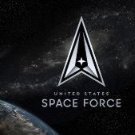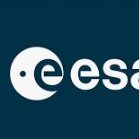Members Can Post Anonymously On This Site
Annual Schriever Wall of Honor event recognizes space, missile pioneers
-
Similar Topics
-
By NASA
2 min read
Preparations for Next Moonwalk Simulations Underway (and Underwater)
This ultra high-definition video featuring an orange tabby cat named Taters, was streamed from nearly 19 million miles away via laser by NASA’s Deep Space Optical Communications (DSOC) experiment, marking a historic milestone for space communications.Jet Propulsion Laboratory Since it began in 1958, NASA has been charged by law with spreading the word about its work to the widest extent practicable. From typewritten press releases to analog photos and film, the agency has effectively moved into social media and other online communications. NASA’s broad reach across digital platforms has been recognized by the International Academy of Digital Arts and Sciences (IADAS), with 10 nominations across multiple categories for the academy’s 29th annual Webby Awards.
The 2025 Webby nominations demonstrate NASA's dedication to sharing the wonders of space through digital platforms. We believe in the power of digital storytelling to inspire the next generation of explorers.
Michelle R. Jones
Acting Associate Administrator for Communications
Public Voting Opportunities
Voting for the Webby People’s Voice Awards—chosen by the public—is open now through Thursday, April 17. Voting links for each category are listed below.
29th Annual Webby Award Nominees
AI, Immersive & Games
NASA’s Snap It! An Eclipse Photo Adventure
NASA
Kids and Family
Social
NASA Instagram
NASA
Education and Science
Matt Dominick’s X Account: A Visual Journey from Space
NASA, Leidos
Best Photography & Design
NASA’s 2024 Total Solar Eclipse Campaign
NASA
Events and Live streams
NASA’s Webb Telescope: Unfolding a Universe of Wonders
NASA Goddard
Education and Science
Video & Film
2024 Total Solar Eclipse: Through the Eyes of NASA
NASA, Leidos
Events and Live
NASA Streams Historic Cat Video From Deep Space
NASA’s Jet Propulsion Laboratory
Events and Live streams
Websites & Mobile Sites
NASA Website
NASA
Government & Associations
NASA+ Streaming Service
NASA
Television, Film & Streaming
NASA Newsletter
NASA
Business, News and Technology
About the Webby Awards
Established in 1996 during the web’s infancy, The Webbys is presented by the IADAS—a 3000+ member judging body. The Academy is comprised of Executive Members—leading Internet experts, business figures, luminaries, visionaries, and creative celebrities—and associate members who are former Webby winners, nominees and other internet professionals.
The Webby Awards presents two honors in every category—the Webby Award and the Webby People’s Voice Award. Members of the International Academy of Digital Arts and Sciences (IADAS) select the nominees for both awards in each category, as well as the winners of the Webby Awards. In the spirit of the open web, the Webby People’s Voice is chosen by the voting public, and garners millions of votes from all over the world.
View the full article
-
By European Space Agency
Video: 00:08:04 Space Debris: Is it a Crisis?
The European Space Agency’s short documentary film ‘Space Debris: Is it a Crisis?’ on the state of space debris premiered at the 9th European Conference on Space Debris on 1 April 2025.
Earth is surrounded by thousands of satellites carrying out important work to provide telecommunications and navigation services, help us understand our climate, and answer fundamental questions about the Universe.
However, as our use of space accelerates like never before, these satellites find themselves navigating increasingly congested orbits in an environment criss-crossed by streams of fast-moving debris fragments resulting from collisions, fragmentations and breakups in space.
Each fragment can damage additional satellites, with fears that a cascade of collisions may eventually render some orbits around Earth no longer useable. Additionally, the extent of the harm of the drastic increase in launches and number of objects re-entering our atmosphere and oceans is not yet known.
So, does space debris already represent a crisis?
The documentary explores the current situation in Earth’s orbits and explains the threat space debris poses to our future in space. It also outlines what might be done about space debris and how we might reach true sustainability in space, because our actions today will have consequences for generations to come.
ESA’s Space Safety Programme
ESA’s Space Safety Programme aims to safeguard the future of spaceflight and to keep us, Earth and our infrastructure on the ground and in space safe from hazards originating in space.
From asteroids and solar storms to the human-made problem of space debris, ESA works on missions and projects to understand the dangers and mitigate them.
In the longer term, to ensure a safe and sustainable future in space, ESA aims to establish a circular economy in space. To get there, the Agency is working on the technology development necessary to make in-orbit servicing and zero-debris spacecraft a reality.
View the full article
-
By Space Force
The U.S. Space Force and ULA launch team successfully completed the certification process of the Vulcan rocket. The first NSSL mission on Vulcan is expected this summer.
View the full article
-
By NASA
3 min read
Preparations for Next Moonwalk Simulations Underway (and Underwater)
Media are invited to meet leaders in the space community during the 62nd annual Goddard Space Science Symposium, taking place from Wednesday, March 19, to Friday, March 21, at Martin’s Crosswinds in Greenbelt, Maryland. The symposium will also be streamed online.
Hosted by the American Astronautical Society (AAS) in conjunction with NASA’s Goddard Space Flight Center in Greenbelt, the symposium examines the current state and future of space science and space exploration at large by convening leading minds across NASA, other government agencies, policy, academia, and industry – collectively navigating a path forward by identifying the opportunities and challenges ahead.
This year’s theme, “Pathways and Partnerships for U.S. Leadership in Earth and Space Science,” highlights the evolving collaborative landscape between the public and private sectors, as well as how it is helping the United States remain and grow as a leading space power.
“Earth and space science are complex by nature, with a growing list of public and private enterprises carving out their space,” said Christa Peters-Lidard, co-chair of the symposium planning committee and Goddard’s director of sciences and exploration. “It’s an exciting time as we work to determine the future trajectory of space exploration in this new era, and the Goddard Space Science Symposium is an instrumental tool for gathering the insights of leading experts across a broad spectrum.”
AAS President Ron Birk and Goddard Deputy Center Director Cynthia Simmons will deliver the symposium’s opening remarks on March 19, followed by panels on enabling science and exploration from the Moon to Mars and navigating space science and exploration policy. Greg Autry, associate provost for space commercialization and strategy at the University of Central Florida, will deliver the keynote address. The first day will conclude with an industry night reception.
The second day of the symposium on Thursday, March 20, will feature panels on enhancing U.S. economic leadership through science, the Habitable Worlds Observatory, and the confluence of public science and the private sector. Gillian Bussey, deputy chief science officer for the U.S. Space Force, will serve as the luncheon speaker.
Panels on the third and final day, March 21, will discuss integrating multi-sector data to advance Earth and space science, the Heliophysics Decadal Survey, and the space weather enterprise. Mark Clampin, acting deputy associate administrator for the NASA Science Mission Directorate, will provide the luncheon address.
Media interested in arranging interviews with NASA speakers should contact Jacob Richmond, Goddard acting news chief.
For more information on the Goddard Space Science Symposium and the updated program, or to register as a media representative, visit https://astronautical.org/events/goddard.
For more information on NASA’s Goddard Space Flight Center, visit https://www.nasa.gov/goddard.
Media Contact:
Jacob Richmond
NASA’s Goddard Space Flight Center, Greenbelt, Md.
Share
Details
Last Updated Mar 18, 2025 EditorJamie AdkinsLocationNASA Goddard Space Flight Center Related Terms
Goddard Space Flight Center View the full article
-
-
Check out these Videos




Recommended Posts
Join the conversation
You can post now and register later. If you have an account, sign in now to post with your account.
Note: Your post will require moderator approval before it will be visible.